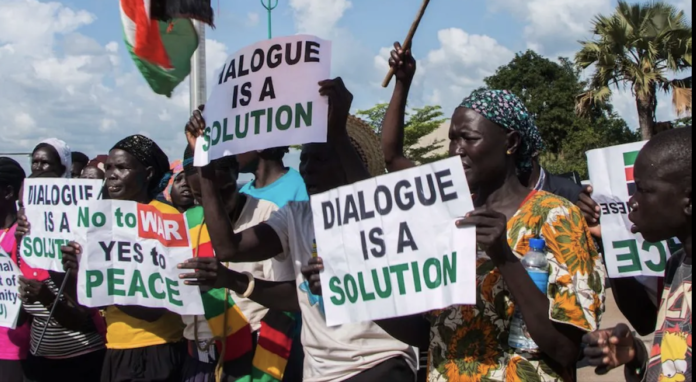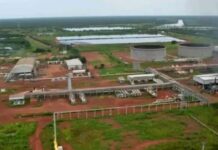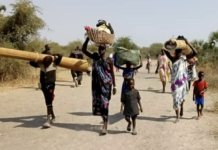Author| Yoal Manyang
South Sudan, a nation forged through struggle and marked by profound cultural and historical divisions, stands at a pivotal moment in its journey toward lasting peace. The road to stability and national harmony requires more than just a cessation of conflict; it demands a deliberate and comprehensive approach rooted in diplomacy, strategic policymaking, and fostering unity across its diverse social, ethnic, and cultural groups.
Central to this process is the crucial role of the Ministry of Foreign Affairs, working alongside professional diplomats and policymakers to create policies that not only reflect national interests but also empower all South Sudanese citizens.
For South Sudan to achieve lasting peace, it must align its foreign and domestic policies in ways that benefit its people, ensuring that every policy crafted reflects the country’s rich diversity while promoting sustainable growth and social cohesion.
It is essential that South Sudan’s diplomats are empowered with the resources, autonomy, and support necessary to craft policies that bridge divides and unite the country’s different communities. This effort requires an inclusive approach that draws upon the expertise of those familiar with South Sudan’s unique challenges and provides the necessary tools for overcoming the nation’s fractured past.
The government must recognize that genuine reconciliation and healing come not just from political power-sharing arrangements but from fostering opportunities that are accessible to all, regardless of ethnic background, social status, or geographical location.
A holistic peace- building approach must emphasize not only equitable political representation but also the creation of economic and social opportunities for marginalized and historically excluded communities.
Policies designed to address these inequities can help to foster a sense of belonging and ownership, ensuring that all citizens feel invested in the country’s future. This will strengthen social bonds, minimize tensions, and provide the foundation for sustained peace.
An inclusive policy approach is key to ensuring that all South Sudanese are part of the national conversation. To achieve this, diplomats and policymakers must actively involve historically marginalized groups in the decision-making process, going beyond mere token representation.
True inclusion requires efforts that ensure all voices, particularly those of vulnerable communities, are heard and considered when crafting policies that affect the nation. This helps to foster a sense of belonging and ownership, which is crucial for maintaining trust and cooperation among the country’s diverse population. South Sudan’s policies must be informed by a national vision that embraces and celebrates diversity rather than one that merely tolerates it.
A critical component of this peace-building process is creating opportunities for open dialogue between South Sudan’s various ethnic, cultural, and social groups. Dialogue is more than a formality; it is a transformative tool for building mutual respect, understanding, and empathy. When citizens from different walks of life engage with one another in safe and constructive spaces, it helps to dismantle long-standing stereotypes and prejudices.
The government must support initiatives that promote these conversations, fostering an environment in which empathy replaces division. By encouraging meaningful dialogue, South Sudan can lay the groundwork for a society based on trust, cooperation, and shared understanding, essential elements for achieving long-term peace.
As South Sudan grapples with the complexities of building peace, it must focus on addressing the root causes of its conflicts. These include historical injustices, unequal access to resources, and political exclusion, which have long been sources of tension and violence. By crafting policies that directly address these fundamental issues, South Sudan’s government can prevent the recurrence of conflict by addressing the grievances that have fueled it.
Furthermore, the peace-building process must be comprehensive, taking into account not only the political dimension but also the social, cultural, and economic factors that contribute to the instability. A commitment to justice, equality, and human rights is paramount in creating a society where every citizen feels valued and heard.
Economic development is also an essential part of South Sudan’s peace-building efforts. Policymakers must prioritize investment in critical sectors such as education, healthcare, infrastructure, and job creation. By investing in the well-being of its citizens, South Sudan can begin to rebuild its economy and provide tangible opportunities for its people.
Such investments are key to creating a resilient society capable of withstanding both external and internal challenges. When communities feel secure in their livelihoods, they are less likely to resort to violence to address their frustrations. Thus, long-term economic development is essential for ensuring that peace endures.
Moreover, South Sudan’s leaders must uphold the rule of law and strengthen the judicial system to ensure that those who undermine peace or break the law are held accountable. A culture of accountability must be fostered, where justice is not only a right but a shared responsibility.
By reinforcing the importance of justice, fairness, and transparency, South Sudan can guard against impunity, which has historically been a major contributor to the cycle of violence. Ensuring that all citizens, regardless of their background or affiliation, are subject to the same laws will help build a foundation of trust and security, both of which are essential for the country’s development and stability.
Finally, for South Sudan to heal from its wounds and emerge as a peaceful and prosperous nation, diplomacy must be the driving force behind its foreign and domestic policies. Diplomats must continue to work toward fostering positive relationships with regional and international partners while advocating for the needs of South Sudan’s people. The national government must ensure that these diplomatic efforts are not isolated from the domestic peace-building process, but are integrated into a comprehensive strategy aimed at reconciliation, rebuilding, and long-term stability.
To sum up, South Sudan stands at a crossroads in its history, with the potential to build a strong foundation for lasting peace. By prioritizing inclusive policies, promoting dialogue, addressing historical grievances, and fostering economic development, the country can create a future defined not by its past struggles but by its shared commitment to unity and progress.
Diplomacy, coupled with a deep commitment to justice, equality, and human dignity, will be the key to transforming South Sudan’s diverse cultural heritage from a source of division into a source of strength. Through diplomacy, South Sudan can not only heal its divisions but also chart a course toward a future where peace, cooperation, and mutual respect guide the nation’s growth and development.
The writer is a diplomat by profession with a Master’s in International Relations and Diplomatic Studies and a Master’s in Humanitarian and Conflict Studies and can be reached at yoal@live.com





